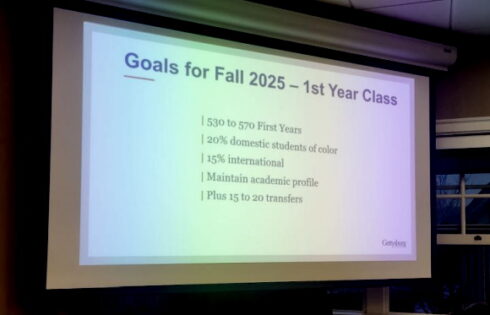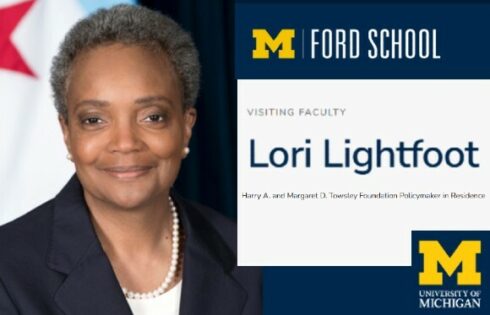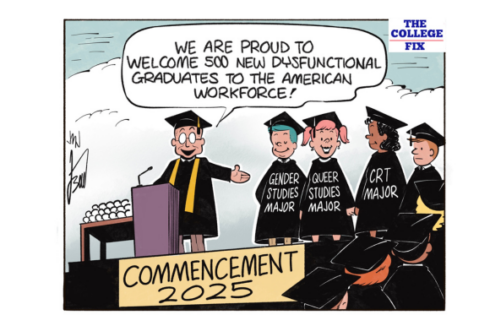
Canada’s Wilfrid Laurier University announced a plan for “equity, diversity and inclusion and indigeneity” earlier this month, intended to address “systemic racism” against “Black, indigenous and racialized people” at the university.
But two Laurier professors known for questioning the university’s direction believed it’s a direct threat to the “basic practices of academic research,” as President Deborah MacLatchy has laid out the plan.
David Haskell, who studies journalism and religion, and finance scholar William McNally wrote an open letter to MacLatchy following the president’s preview of the plan to faculty. It’s published by the Society for Academic Freedom and Scholarship, which promotes freedom of thought in Canadian universities.
“We are both trained social scientists” who were “hired to think independently” – perhaps why “Twitter mobs have labelled us both racists and called for you to fire us” –
and they worry that MacLatchy’s stated desire to combat “systemic racism” will harm academic freedom at Laurier.
The concept comes from critical race theory, yet MacLatchy never even defines “racism” in her plan, Haskell and McNally wrote. Applying CRT not only requires “revolutionary changes to every part of the University from governance to curriculum and hiring,” but the theory itself regards the scientific method “as perpetuating white oppression”:
Abandoning the scientific method means ignoring other causal determinants and possibly arriving at incorrect solutions. Journals in the field of quantitative social science contain hundreds of peer-reviewed publications showing that factors unrelated to racism can and do explain the disproportionate incidence of crime and poverty in certain segments of the North American black community. …
Having officially mandated Laurier’s position, as your message does, do you suppose faculty who rely on these other theoretical paradigms feel “included” in the conversation and free to speak about their views?
The professors also question the stated evidentiary basis for MacLatchy’s plan, an “unpublished preliminary study” by Laurier that explores racism “from the perspective of those who experience it” but didn’t define racism, “attempt rigorous sampling” or provide more than a few controls.
The “Being Raced” study, by its own admission, accepts whatever its “self-selected sample” considers racism in their own lives. Haskell and McNally instead suggest the university gather “rigorous, quantitative data” to determine the nature and frequency of racism, including differences “across types of racism” and traits within racism, as well as whether systemic racism is even a problem at Laurier.
Another major problem with using “Being Raced” as the basis for Laurier’s plan is that the study frowns on forms of research that may “generalize or stereotype minority groups, dismiss non-western ideologies/experiences, [or] invalidate racialized people’s experiences of racism,” the professors write.
This is a direct threat to professors who, for example, show their students government statistics on the varying education and income levels of Asian Canadians, whites and blacks, or share research by the Harvard economist Roland Fryer that found no racial bias in police shootings.
Rather than a “select group of administrators” diagnosing the problem and proposing solutions “without public discussion,” the university should “demonstrate the scientific method” in its approach:
This might start with a series of public lectures or workshops by proponents of various approaches, critical theory and others. Clearly there are at least two sides to this issue and to suppress or ignore one of those sides would be in contravention of Laurier’s enabling document—The Wilfrid Laurier University Act of 1973. … If an action, policy or statement of the university contradicts the WLU Act it is deemed ultra vires (beyond its power) and is invalid.
Haskell and McNally suggest several black scholars Laurier could invite who come from a non-CRT approach, including Brown University’s Glenn Loury, Columbia’s John McWhorter and the Manhattan Institute’s Coleman Hughes, a recent Columbia graduate.
IMAGE: Frinkiac.com
Like The College Fix on Facebook / Follow us on Twitter




Add to the Discussion